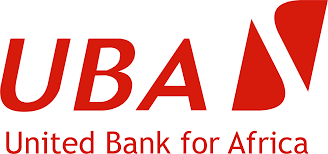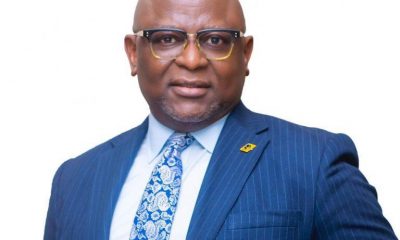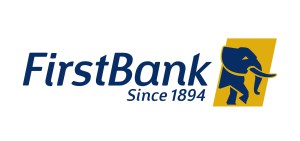Business
UBA CFO, Finance Team Shine at CFO Awards

Pan-African financial services group, United Bank for Africa Plc repeated the outstanding feat, it recorded last year at the 2nd edition of Nigeria CFO awards, with a notch higher when its Group Chief Finance Officer (Group CFO) and the Finance Team bagged the treble at the awards night held on November 19, 2016 at Oriental Hotel, Lekki Lagos. The bank won the following awards; CFO of the Year; Financial Innovation Project of the Year and Finance Team of the Year.
Ugo Nwaghodoh, UBA’s Group Chief Finance Officer was ahead of other nominees in the banking category, to emerge CFO of the year.
The Finance team of the year was also given to the finance division of UBA for their exceptional performance in the year under review, which the organiser say resulted in the bank emerging as one of the resilient performers in the Nigerian banking industry, despite the economic downturn.
Receiving the awards, UBA’s Group CFO, flanked by some of his colleagues, thanked the organizers for the recognition which is coming, second time in a row, noting that he couldn’t have done it alone and that he is delighted to be working with the best finance team in the Nigerian banking industry. He dedicated the awards to his team who he said work assiduously with the passion to always exceed expectations. Achieving a feat like this at a challenging period, only indicates that hard work and dedication truly pays. We are further encouraged by these awards but speaking the minds of my colleagues, this presents new challenges to us, as we will intensify our commitment towards setting benchmarks for the industry, particularly in our strategic roles beyond financial reporting and performance management , Nwaghodoh said.
Also speaking at the awards night, the Chief Executive Officer of Instinct Business magazine, Organisers of the CFO awards, Akin Naphtal, explained that CFOs are integral to the successes of organizations as their expansive financial perspectives help fuel growth. That is why we believe the achievements of financial executives who have been outstanding in their profession and have contributed in no small measure to the growth of their organisations and the economy at large, must be recognized and celebrated”.
The awards nights was a colorful gathering of CFOs from different industries, including, banking, Insurance, Telecoms, Pharmaceuticals, Construction, Investment Banking, Media broadcast, Conglomerate, Logistics & transport, and Public sector across Nigeria with many lauding the organizers for the rare initiative.
Mr Nwaghodoh, UBA’s Group CFO is a seasoned financial analyst and accountant with over two decades experience spanning assurance, advisory, financial control, strategy and business transformation, investor relations, mergers and acquisitions, business integration and project management. Prior to his appointment as Group Chief Finance Officer of UBA, he was at different times, Group Financial Controller, Group Chief Compliance Officer and Head – Performance Management in UBA. Before joining UBA in 2004, he had almost one decade experience with Deloitte and PricewaterhouseCoopers, both in Nigeria and Kenya.
He holds a BSc degree from the University of Ibadan, Nigeria and an MSc degree in Finance and Management from Cranfield University, England. He is a fellow of the Institute of Chartered Accountants of Nigeria and Institute of Credit Administration. He is also an Honorary Senior Member (HCIB) of the Chartered Institute of Bankers of Nigeria (CIBN), and a member of Cranfield Management Association.
In his capacity as GCFO, the Bank has sustained robust level of growth by consistently recording significant and enviable financial performance.
Business
Nigeria’s Inflation Drops to 15.10% as NBS Reports Deflationary Trend

Nigeria’s headline inflation rate declined to 15.10 per cent in January 2026, marking a significant drop from 27.61 per cent recorded in January 2025, according to the latest Consumer Price Index (CPI) report released by the National Bureau of Statistics.
The report also showed that month-on-month inflation recorded a deflationary trend of –2.88 per cent, representing a 3.42 percentage-point decrease compared to December 2025. Analysts say the development signals easing price pressures across key sectors of the economy.
Food inflation stood at 8.89 per cent year-on-year, down from 29.63 per cent in January 2025. On a month-on-month basis, food prices declined by 6.02 per cent, reflecting lower costs in several staple commodities.
The data suggests a sustained downward trajectory in inflation over the past 12 months, pointing to improving macroeconomic stability.
The administration of President Bola Ahmed Tinubu has consistently attributed recent economic adjustments to ongoing fiscal and monetary reforms aimed at stabilising prices, boosting agricultural output, and strengthening domestic supply chains.
Economic analysts note that while the latest figures indicate progress, sustaining the downward trend will depend on continued policy discipline, exchange rate stability, and improvements in food production and distribution.
The January report provides one of the clearest indications yet that inflationary pressures, which surged in early 2025, may be moderating.
Bank
Alpha Morgan to Host 19th Economic Review Webinar

Alpha Morgan to Host 19th Economic Review Webinar
In an economy shaped by constant shifts, the edge often belongs to those with the right information.
On Wednesday, February 25, 2026, Alpha Morgan Bank will host the 19th edition of its Economic Review Webinar, a high-level thought leadership session designed to equip businesses, investors, and individuals with timely financial and economic insight.
The session, which will hold live on Zoom at 10:00am WAT and will feature economist Bismarck Rewane, who will examine the key signals influencing Nigeria’s economic direction in 2026, including policy trends, market movements, and global developments shaping the local landscape.
With a consistent track record of delivering clarity in uncertain times, the Alpha Morgan Economic Review continues to provide practical context for decision-making in a dynamic environment.
Registration for the 19th Alpha Morgan Economic Review is free and can be completed via https://bit.ly/registeramerseries19
It is a bi-monthly platform that is open to the public and is held virtually.
Visit www.alphamorganbank to know more.
Business
GTBank Launches Quick Airtime Loan at 2.95%

GTBank Launches Quick Airtime Loan at 2.95%
Guaranty Trust Bank Ltd (GTBank), the flagship banking franchise of GTCO Plc, Africa’s leading financial services group, today announced the launch of Quick Airtime Loan, an innovative digital solution that gives customers instant access to airtime when they run out of call credit and have limited funds in their bank accounts, ensuring customers can stay connected when it matters most.
In today’s always-on world, running out of airtime is more than a minor inconvenience. It can mean missed opportunities, disrupted plans, and lost connections, often at the very moment when funds are tight, and options are limited. Quick Airtime Loan was created to solve this problem, offering customers instant access to airtime on credit, directly from their bank. With Quick Airtime Loan, eligible GTBank customers can access from ₦100 and up to ₦10,000 by dialing *737*90#. Available across all major mobile networks in Nigeria, the service will soon expand to include data loans, further strengthening its proposition as a reliable on-demand platform.
For years, the airtime credit market has been dominated by Telcos, where charges for this service are at 15%. GTBank is now changing the narrative by offering a customer-centric, bank-led digital alternative priced at 2.95%. Built on transparency, convenience and affordability, Quick Airtime Loan has the potential to broaden access to airtime, deliver meaningful cost savings for millions of Nigerians, and redefine how financial services show up in everyday life, not just in banking moments.
Commenting on the product launch, Miriam Olusanya, Managing Director of Guaranty Trust Bank Ltd, said: “Quick Airtime Loan reflects GTBank’s continued focus on delivering digital solutions that are relevant, accessible, and built around real customer needs. The solution underscores the power of a connected financial ecosystem, combining GTBank’s digital reach and lending expertise with the capabilities of HabariPay to deliver a smooth, end-to-end experience. By leveraging unique strengths across the Group, we are able to accelerate innovation, strengthen execution, and deliver a more integrated customer experience across all our service channels.”
Importantly, Quick Airtime Loan highlights GTCO’s evolution as a fully diversified financial services group. Leveraging HabariPay’s Squad, the solution reinforces the Group’s ecosystem proposition by bringing together banking, payment technology, and digital channels to deliver intuitive, one-stop experiences for customers.
With this new product launch, Guaranty Trust Bank is extending its legacy of pioneering digital-first solutions that have redefined customer access to financial services across the industry, building on the proven strength of its widely adopted QuickCredit offering and the convenience of the Bank’s iconic *737# USSD Banking platform.
About Guaranty Trust Bank
Guaranty Trust Bank (GTBank) is the flagship banking franchise of GTCO Plc, a leading financial services group with a strong presence across Africa and the United Kingdom. The Bank is widely recognized for its leadership in digital banking, customer experience, and innovative financial solutions that deliver value to individuals, businesses, and communities.
About HabariPay
HabariPay is the payments fintech subsidiary of GTCO Plc, focused on enabling fast, secure, and accessible digital payments for individuals and businesses. By integrating payments and digital technology, HabariPay supports innovative services that make everyday financial interactions simpler and more seamless.
Enquiries:
GTCO
Group Corporate Communication
[email protected]
+234-1-2715227
www.gtcoplc.com
-

 celebrity radar - gossips6 months ago
celebrity radar - gossips6 months agoWhy Babangida’s Hilltop Home Became Nigeria’s Political “Mecca”
-

 society6 months ago
society6 months agoPower is a Loan, Not a Possession: The Sacred Duty of Planting People
-

 society5 months ago
society5 months agoReligion: Africa’s Oldest Weapon of Enslavement and the Forgotten Truth
-

 news6 months ago
news6 months agoTHE APPOINTMENT OF WASIU AYINDE BY THE FEDERAL GOVERNMENT AS AN AMBASSADOR SOUNDS EMBARRASSING












You must be logged in to post a comment Login